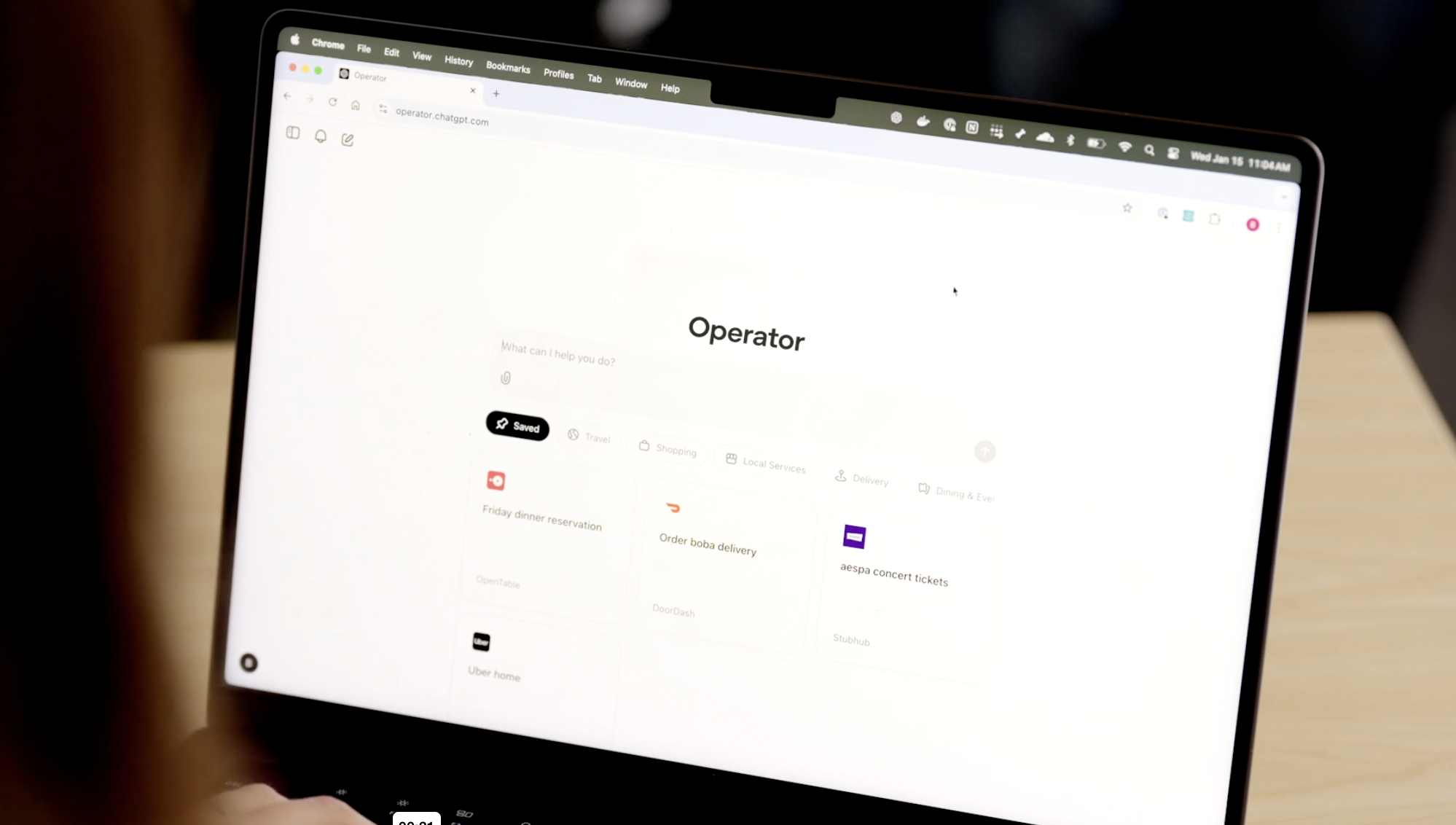
OpenAI has launched Operator, a largely autonomous AI agent designed to take your simple text prompts and turn them into real-world tasks completed via the internet. In theory, you can ask it to do almost anything that’s possible via a web browser. In practice, early users seem to be finding the results rather hit and miss.
Examples of the sorts of things Operator can do are booking travel, making restaurant reservations for a certain time, or perhaps buying concert tickets for a specific band within a given price range.
Currently released as a research preview only available to ChatGPT Pro subscribers rather than a fully baked product, Operator is based on OpenAI’s Computer-Using Agent (CUA) model, which combines the computer vision capabilities from GPT-4o’s with specific graphical user interfaces (GUIs) training and advanced reasoning to create a tool capable of browsing the web, formulating multi-step tasks from a text prompt and executing the whole shebang.
Arguably, Operator is not unique, what with ByteDance’s UI-TARS and Anthropic’s Computer Use having a somewhat similar remit. But perhaps what makes Operator a little different is that it doesn’t need APIs.
“Operator can ‘see’ (through screenshots) and ‘interact’ (using all the actions a mouse and keyboard allow) with a browser, enabling it to take action on the web without requiring custom API integrations,’ OpenAI says.
That said, it does seem like it helps if web services are optimized for Operator. “We’re collaborating with companies like DoorDash, Instacart, OpenTable, Priceline, StubHub, Thumbtack, Uber, and others to ensure Operator addresses real-world needs while respecting established norms,” OpenAI says.
Presumably, your results—or should that be Operator’s results?—won’t be as accurate with non-optimized services.
Exactly how good Operator currently is at taking a prompt and running with it isn’t entirely clear. OpenAI itself says the CUA models returns a 38.1% success rate on the OSWorld benchmark test for full computer use tasks, a 58.1% for WebArena, and 87% on WebVoyager for web-based tasks.
Meanwhile, some early users are reporting that Operator may be more prone to hallucinations than recent builds of ChatGPT itself. For instance, one user claims that when tasked with generating a list of online influencers and tabulating their contact details, Operator entirely made all the details up.
Some users also report that Operator is surprisingly slow, something that seems to tally with the video demo posted by OpenAI. It’s hardly a whirlwind of mouse inputs, that’s for sure.
So, it seems you’d be brave to ask Operator to do your grocery shopping next week and expect all the right stuff to turn up, or perhaps anything to turn up at all.
The big question, then, is how quickly this early beta version of Operator will develop into something broadly reliable and useful. And then of course how safe it will be if and when it does.
“We know bad actors may try to misuse this technology. That’s why we’ve designed Operator to refuse harmful requests and block disallowed content,” OpenAI says, also explaining that Operator has been designed to deal with websites that might try to hijack the AI agent with hidden prompts, malicious code, or phishing attempts.
For now, these are all, ultimately, imponderables. But for better or worse it does seem like you’ll soon be able to hand over quite a few of your routine online tasks to an AI agent.
Source link










Add comment